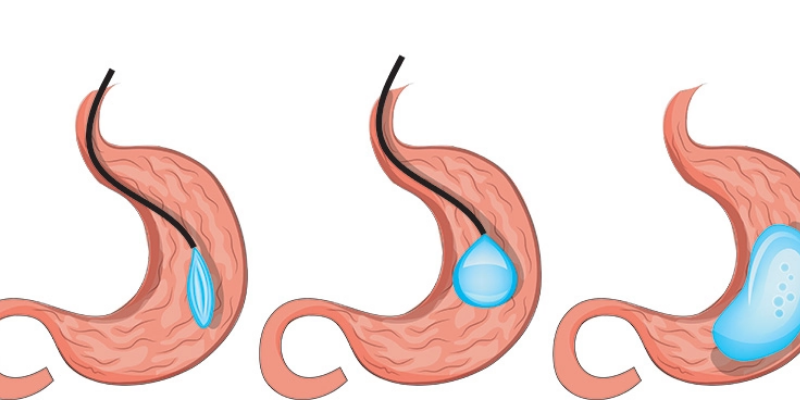Weight Loss Surgery Prices
Weight loss surgery prices vary. We all complain about our weight. Is not it? Solving this is now very easy. How does? In our developing world, medicine has developed a lot. Now it has become very easy to perform obesity surgeries. There is no need to diet for years or starve for hours or even days. You find an expert and get information. Then it chooses the procedure to follow. Finally, he does your surgery. Did you see that we summarized it in three steps? It’s that easy. But the right procedure is very important. Because your health is more important than anything else. Weight loss surgery prices vary according to your type of surgery.
Obesity has now become a rising health issue in the country, and the number of fat people is increasing by the minute as those suffering from the ailment continue to gain weight. This is why healthcare experts are always striving to enhance their services in order to give the best possible treatment to obese patients. Patients can enjoy a healthy life free of medical health concerns and difficulties thanks to effective weight loss surgery. But how much effort does it take to achieve a healthy weight?
Weight Loss Surgery Prices: Insurance and Costs
According to one research, the average duration between considering weight reduction surgery and having it done is three years. A significant amount of time can be spent working, researching, and discussing with patients regarding their operation following surgery.
The average cost of gastric bypass surgery is $23,000, whereas a lap band costs $14,500, and the average cost of a sleeve gastrectomy is $14,900. As a result, before you get too engaged, you should check to see if your insurance will cover weight reduction surgery. Patients from the middle and upper classes are the majority of those who have weight loss surgery. Most people who are thinking about having weight reduction surgery cannot afford to pay $20,000 to reduce weight. However, insurance companies are now covering more weight loss operations than ever before.
Should I Pay for the Surgery With Insurance or With Cash?
When it comes to weight reduction surgery, insurance is frequently the best option. Many transactions, however, are not covered by insurance. Gastric tubes, duodenal switches, small gastric bypasses, and other experimental treatments have historically been excluded. Most major insurance companies now cover gastric tubes, laparoscopic gastric bypass, and lap gastric bands. This does not, however, imply that your policy is covered.
It is determined by your policy, not by the insurer.
While most insurance companies provide some form of weight reduction surgery coverage, your particular policy specifies what is and is not covered. Some rules expressly prohibit weight reduction surgery. Most insurance companies charge a higher premium to cover weight reduction surgery. As a result, you should review your policy to see if you are covered. The easiest method to accomplish this is to contact your carrier directly.
Gastric Bypass Surgery
Gastric bypass surgery removes a portion of your stomach from the remainder of your stomach by creating a tiny pouch. Food is able to bypass the remainder of the stomach as a result of this. A surgeon attaches the small intestine to the freshly formed stomach. This shrinks your stomach and causes you to consume smaller meals. Smaller stomachs and tiny intestines may digest and absorb less food, which may imply that a person gets fewer nutrients from smaller meals.
With this practice, the majority of people lose a considerable amount of weight. However, surgery necessitates long term dietary adjustments. A person may become lacking in key nutrients if they do not receive adequate assistance. Gastric bypass surgery is also a somewhat difficult treatment that necessitates a lengthier hospital stay.
Arm With a Gastrectomy
Gastric sleeve surgery eliminates around 80% of the stomach. This has the same effect as a gastric bypass in that it limits the amount of food a person can eat. Because the stomach is smaller after surgery, the production of numerous hormones is also affected. This can help you feel fuller sooner and minimize cravings for certain foods. Sleeve gastrectomy is equally effective as gastric bypass and is a less invasive treatment with a shorter hospital stay than ASMBS. It can assist minimize many weight loss challenges by generating a sensation of fullness and lowering cravings, in addition to promoting weight reduction. It, like gastric bypass, can result in long term nutritional deficits. It’s also unstoppable.
Stomach Band Adjustable
The adjustable stomach band is a band that wraps around the top portion of the stomach. This reduces the useable part of the stomach and has comparable consequences to gastric bypass and sleeve gastrectomy. A doctor will gradually tighten the band, resulting in a more gradual impact compared with typical operations. According to research, gastric banding does not restrict the amount of food a person can ingest. Food may flow via the conveyor belt. Instead, the group can make a difference by eliminating hunger. Adjustable gastric banding is a reversible operation that has the lowest incidence of early complication of any weight loss surgery. It’s also less intrusive and has less of a danger of nutritional inadequacies. However, it also has the highest incidence of recurrent procedures and the slowest pace of weight loss.
Duodenal Switched Biliopancreatic Diversion
First, the surgeon produces a smaller stomach, similar to how sleeve gastrectomy surgery is performed. The surgeon next removes a portion of the small intestine, which reduces the quantity of food you can absorb. These actions, when combined, result in a smaller stomach that can store less food while keeping the body from accumulating as much weight as it normally might from the food you eat.
Patients who have the duodenal switch often lose more weight than those who undergo other surgeries. This procedure also has the potential to treat weight related problems including diabetes. It takes less nutritional monitoring, and most people may eat pretty regular meals over time. It does, however, have the highest complication and fatality rate, as well as a high prevalence of nutritional deficiencies and, need many follow up visits.
How Can I Manage Financing Weight Loss Surgery Prices?
Many options for those looking to finance surgery are available in managing weight loss surgery prices. You can look into medical loans, personal loans, credit card plans, or crowdfunding for weight loss surgery for low income patients. Additionally, many hospitals and clinics offer financing plans to help reduce the cost of weight loss surgery or cover a portion. Patients should look into any special discounts their surgeon may offer and check with their employer and local churches or organizations that often support them in these situations. You can even take advantage of discounts offered by particular providers if you meet specific qualifications.

Researching all the available financing options for weight loss surgery prices is critical to ensure you get the best deal possible regarding weight loss surgery pricing. Be sure to also look into each option’s interest rate, repayment terms, duration, and any hidden fees associated with the loan or credit card application process. Ultimately, finding the financing option for weight loss surgery cost that works best for your budget is crucial to afford to pay for the procedure while staying within your means.



